书中给了栈的三道例题,之前自己编了一下,感觉还好。
这几页的图片附在最后。
下面这个是括号匹配的代码,大括号内只能包含中括号,中括号内才能再包含小括号,小括号内不能再包含小括号。
#include <cstdio>
#include <stack>
using namespace std;
stack <char> s;
bool ok1(char c)
{
switch(c)
{
case '(': return true;
case '[': return true;
case '{': return true;
default : return false;
}
}
bool ok2(char c)
{
switch(c)
{
case ')': return true;
case ']': return true;
case '}': return true;
default : return false;
}
}
bool compare(char a, char b)
{
if(a == '(' && b == ')') return true;
if(a == '[' && b == ']') return true;
if(a == '{' && b == '}') return true;
return false;
}
int main()
{
char c;
//freopen("bracket.in","r",stdin);
//freopen("bracket.out","w",stdout);
while(scanf("%c",&c) != EOF && c != '\n')
{
if(ok1(c))
{
if(s.empty()) s.push(c);
else if(s.top() == '{' && (c == '[' || c == '(')) s.push(c);
else if(s.top() == '[' && c == '(') s.push(c);
else
{
printf("Failure\n");
return 0;
}
}
else if(ok2(c))
{
if(!s.empty() && compare(s.top(),c))
{
s.pop();
}
else
{
printf("Failure\n");
return 0;
}
}
}
if(s.empty()) printf("Success\n");
else printf("Failure\n");
return 0;
} 下面这个是表达式计算,先转化为后缀表达式,只有运算符优先级大于栈顶元素时入栈,否则将栈内算符出栈。(然而我搜索了一下却并不知道这样做的原因,希望如果有看到这个文章的大神能解答一下)
最后进行后缀表达式计算。
#include <cstdio>
#include <stack>
#include <cctype>
#include <cstdlib>
char s[100],expr[10000];
using namespace std;
stack<char> st;
stack<double> n;
char cmp(char, char);
int main()
{
char c;
int k = 0;
st.push('@');
//读入数据并转化成后缀表达式,所读入数据中不应包含空格,
//并且以EOF结束(屏幕输入为ctrl+Z),只包含 +-*/()字符
while(scanf("%c", &c) != EOF)
{
if(isdigit(c))
expr[++k] = c;
else
{
expr[++k] = ' ';
while(cmp(st.top(), c) == '>')
{
expr[++k] = st.top();
st.pop();
}
if(cmp(st.top(), c) == '=')
{
if(st.top() == '(') st.pop();
if(st.top() == '@') break;
}
st.push(c);
}
}
while(!st.empty())
{
switch(st.top())
{case '+':case '-':case '*':case '/': expr[++k] = st.top();}
st.pop();
}
printf("后缀表达式:");
for(int i = 1;i <= k; i++)
printf("%c", expr[i]);
printf("\n");
//后缀表达式求值
for(int i = 1;i <= k;)
{
if(isdigit(expr[i]))
{
double num = 0;
while(isdigit(expr[i]))
num = num * 10 + expr[i++]-'0';
n.push(num);
}
if(!isdigit(expr[i]) && expr[i] != '\0' && expr[i] != ' ')
{
double b = n.top();
n.pop();
double a = n.top();
n.pop();
switch(expr[i])
{
case '+':n.push(a+b);break;
case '-':n.push(a-b);break;
case '*':n.push(a*b);break;
case '/':n.push(a/b);break;
}
i++;
}
if(expr[i] == ' ') i++;
}
printf("%f\n", n.top());
getchar();getchar();
return 0;
}
char cmp(char a,char b)
{
if(a == '@')
if(b == a) return '=';
else return '<';
if(a == '(')
if(b == ')') return '=';
else return '<';
if(b == '(') return '<';
if(a == '+' || a == '-')
if(b == '*' || b == '/') return '<';
else return '>';
if(a == '*' || a == '/') return '>';
}下面这个是十进制转八进制数,不多说,真的很简单。
#include <cstdio>
#include <stack>
using namespace std;
int main()
{
int n = 0;
scanf("%d", &n);
stack<int> num;
while(n != 0)
{
num.push(n%8);
n /= 8;
}
while(!num.empty())
{
printf("%d", num.top());
num.pop();
}
printf("\n");
getchar();getchar();
return 0;
} 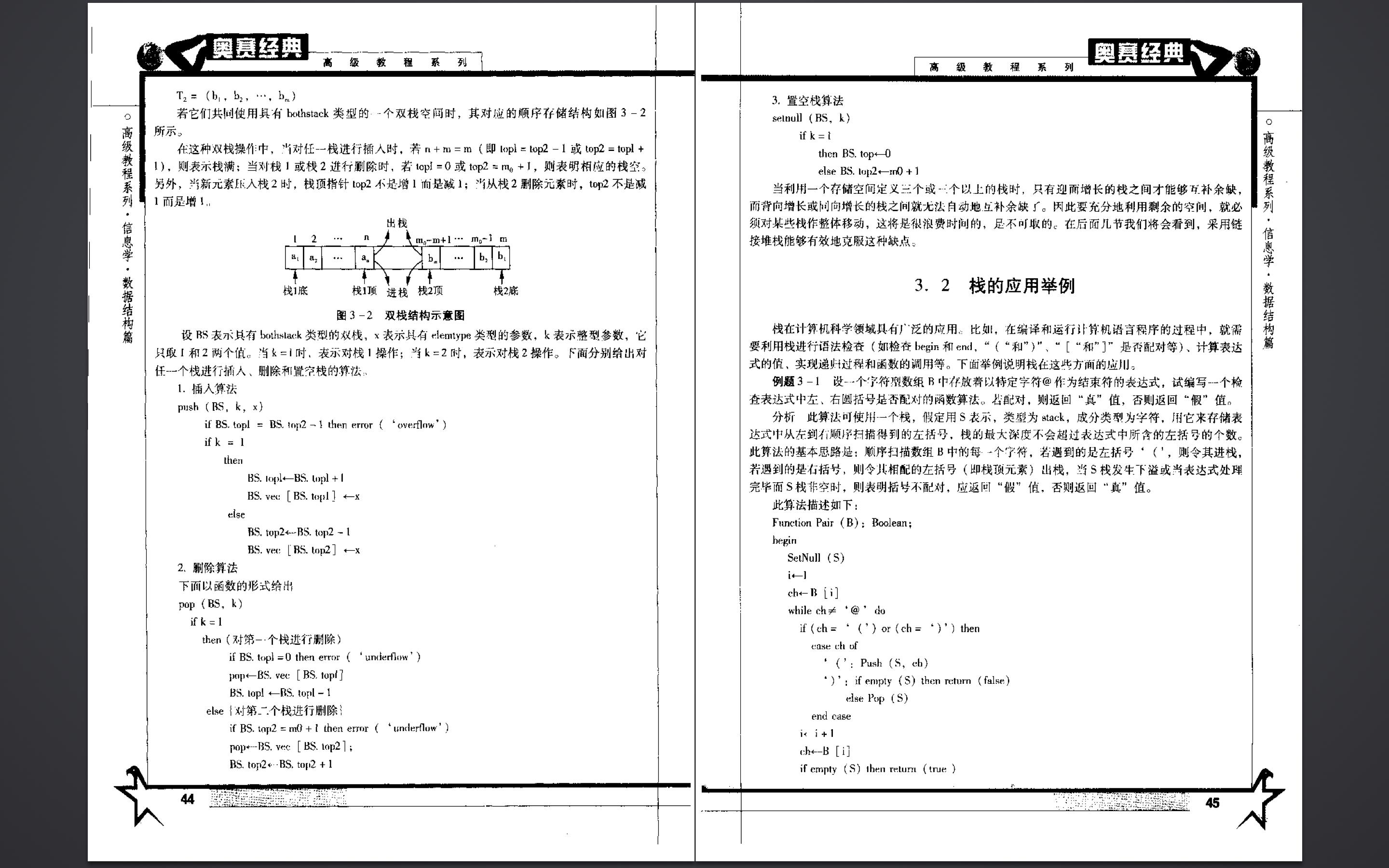
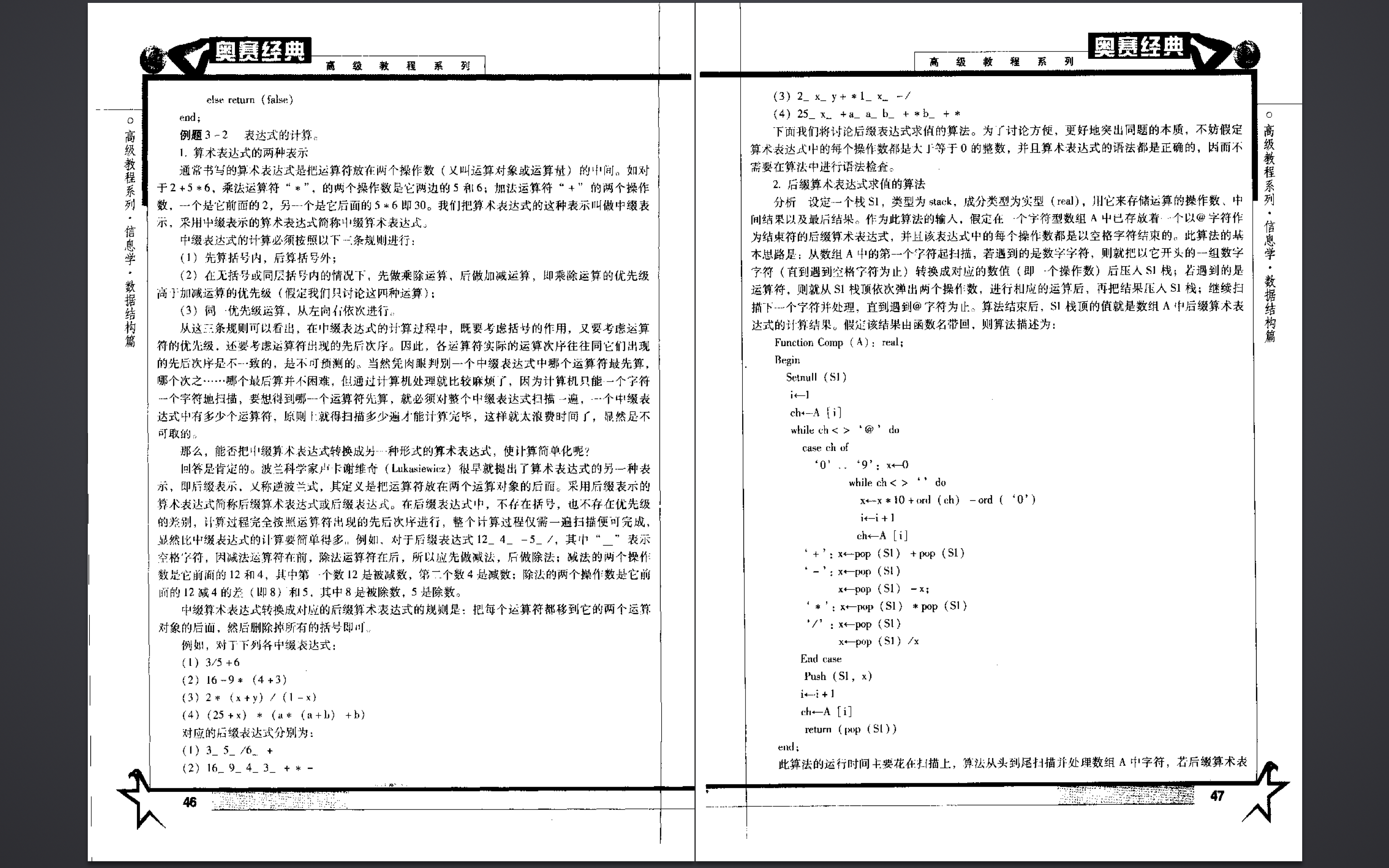
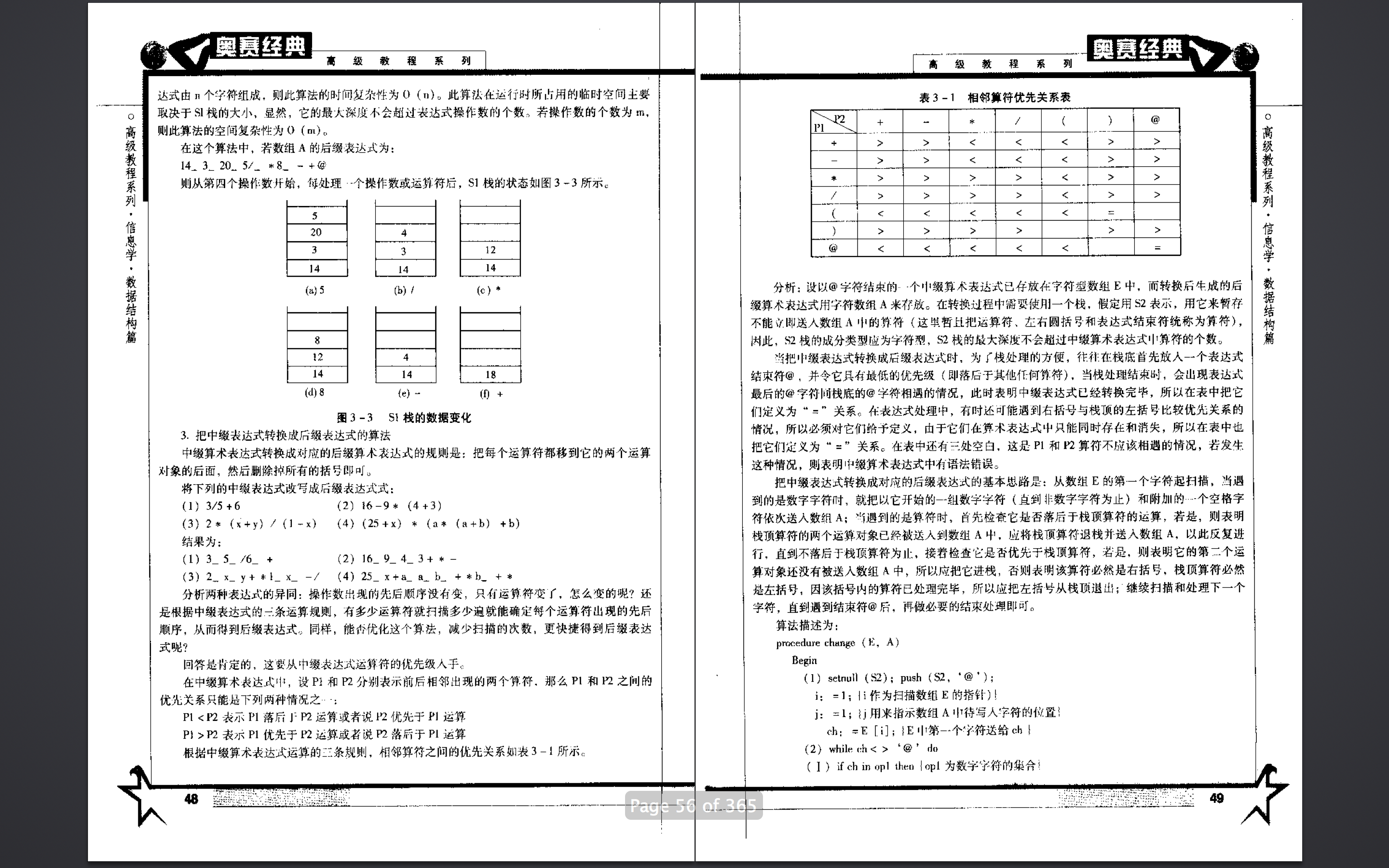
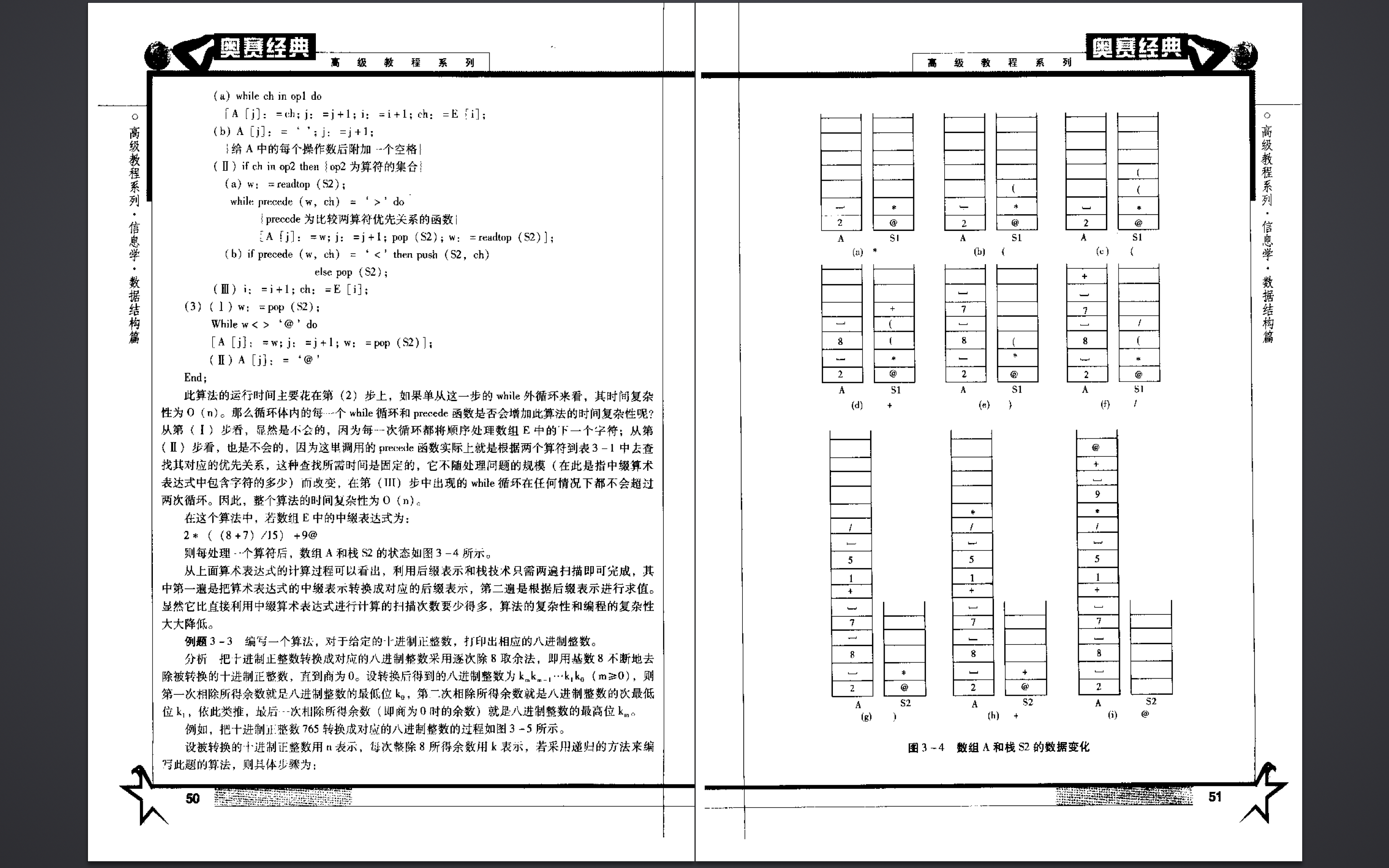










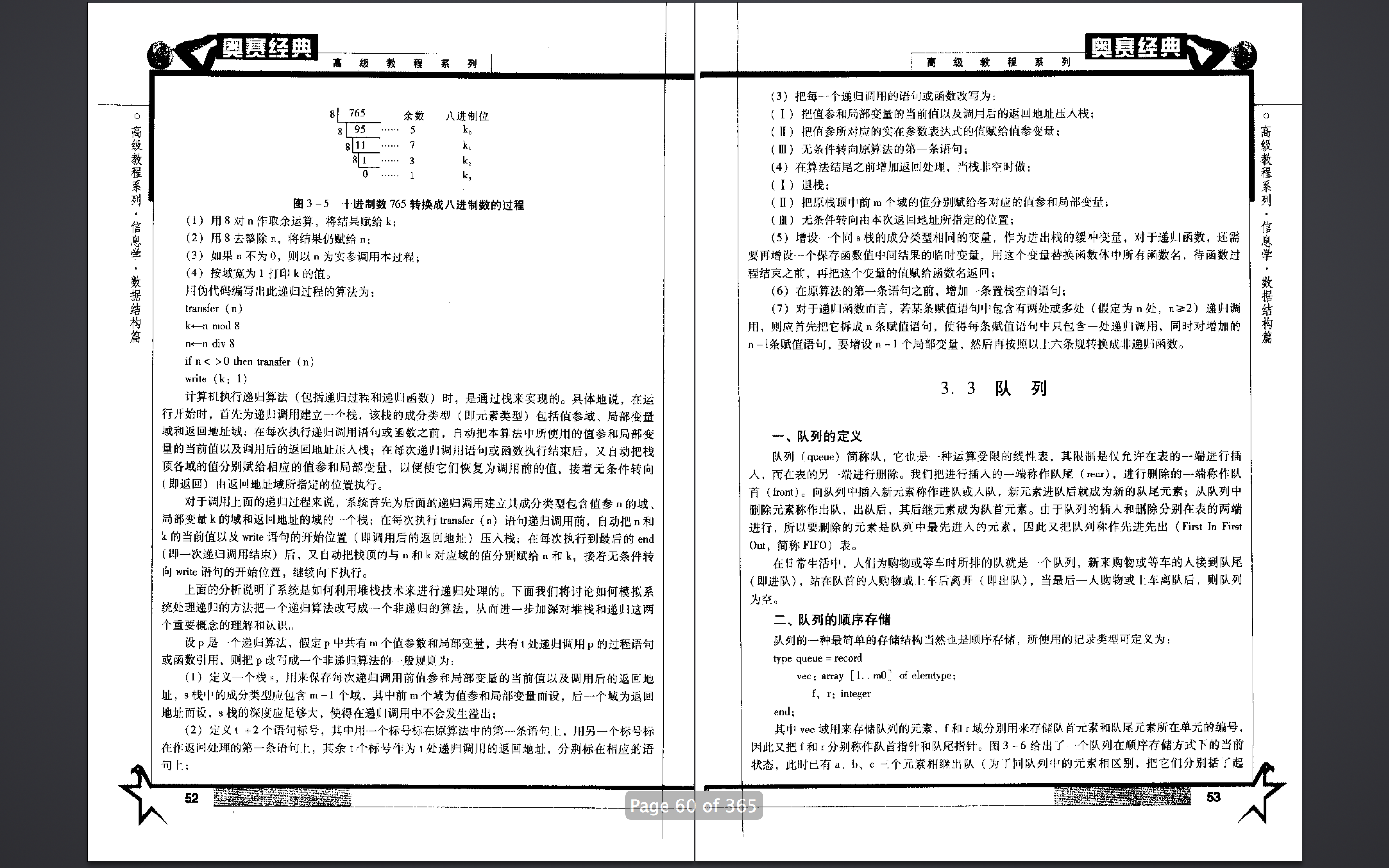














 967
967

 被折叠的 条评论
为什么被折叠?
被折叠的 条评论
为什么被折叠?








